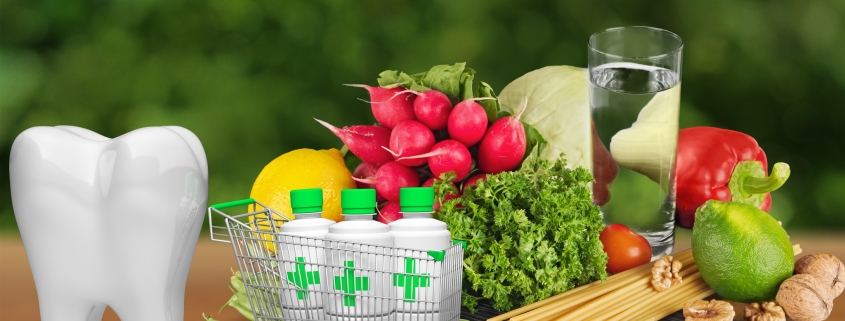The Crucial Role of Nutrition in Dental Health
When it comes to maintaining a healthy smile, brushing, flossing, and regular dental check-ups are often emphasized. However, another essential factor that significantly influences oral health is nutrition. The foods and beverages we consume play a crucial role in the health of our teeth and gums, impacting everything from tooth decay to gum disease. Understanding the relationship between nutrition and dental health is key to promoting a radiant smile and overall well-being.
Protecting Enamel with Calcium-Rich Foods:
Calcium is a vital mineral that strengthens tooth enamel, the protective outer layer of the teeth. Incorporating calcium-rich foods such as dairy products (milk, cheese, yogurt), leafy greens (kale, spinach), and almonds into the diet can help maintain strong and healthy teeth. These foods not only contribute to enamel protection but also aid in remineralization, repairing minor damage caused by acids and bacteria.
Vitamin C for Gum Health:
Vitamin C is essential for maintaining healthy gums and supporting the body’s immune system. A deficiency in vitamin C can lead to gum disease, characterized by swollen, bleeding gums and eventual tooth loss. Including fruits like oranges, strawberries, kiwi, and vegetables such as bell peppers and broccoli in the diet provides ample vitamin C to promote gum health and combat inflammation.
Fluoride for Cavity Prevention:
Fluoride is a mineral known for its ability to prevent tooth decay by strengthening enamel and making teeth more resistant to acid attacks from plaque bacteria. Drinking fluoridated water and using fluoride toothpaste are effective ways to incorporate this mineral into daily oral care routines. Additionally, consuming foods and beverages prepared with fluoridated water, such as tea and certain seafood, can further support cavity prevention.
Crunchy Fruits and Vegetables for Oral Hygiene:
Crunchy fruits and vegetables, such as apples, carrots, and celery, act as natural toothbrushes, helping to clean the teeth and stimulate saliva production. Saliva plays a crucial role in neutralizing acids, washing away food particles, and remineralizing enamel. Including these fiber-rich foods in the diet not only promotes oral hygiene but also provides essential nutrients for overall health.
Limiting Sugary and Acidic Foods:
Sugary and acidic foods and beverages can wreak havoc on dental health by fueling the growth of cavity-causing bacteria and eroding tooth enamel. Limiting the consumption of sugary snacks, sodas, candies, and acidic fruits can help prevent tooth decay and enamel erosion. When indulging in these treats, it’s essential to practice moderation and follow up with thorough oral hygiene practices.
Hydration for Saliva Production:
Adequate hydration is essential for saliva production, which helps maintain oral health by rinsing away food debris and buffering acids. Encouraging children to drink water throughout the day, especially after meals and snacks, promotes saliva flow and supports oral hygiene. Opting for water over sugary or acidic beverages further reduces the risk of tooth decay and enamel erosion.
Conclusion:
Nutrition plays a significant role in maintaining optimal dental health and preventing oral diseases. By incorporating calcium-rich foods for enamel protection, vitamin C for gum health, fluoride for cavity prevention, crunchy fruits and vegetables for oral hygiene, and limiting sugary and acidic foods, individuals can support their smiles from the inside out. Prioritizing a balanced diet rich in essential nutrients not only promotes a radiant smile but also contributes to overall well-being. Combined with regular dental check-ups and proper oral hygiene practices, a nutritious diet lays the foundation for a lifetime of healthy smiles.

